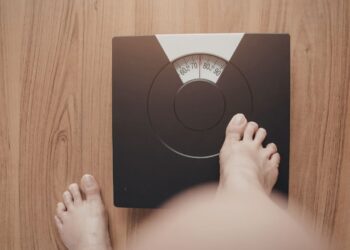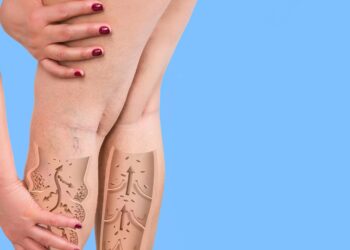Low testosterone (Low T) is a condition that can impact various aspects of a man’s health, from physical to emotional. It is more common than we realize. It may even go undiagnosed for years.
Fortunately, there are good options, like testosterone replacement therapy and natural boosting methods, for addressing this issue. People may wonder which one will suit them the best.
This article compares both approaches to help you understand what truly works across situations to restore optimal testosterone levels.
What Is Low Testosterone?
Low testosterone is also called hypogonadism. It happens when the body does not produce enough of the testosterone. The hormone plays an important role in the development of male reproductive tissues and muscle mass, along with bone density and red blood cell production.
Sexual function is also regulated by it. Balanced testosterone helps boost confidence and improves overall well-being. Here are some symptoms of low testosterone:
- Decreased libido and erectile dysfunction
- Persistent fatigue or low-energy
- Depression or mood swings
- Loss of muscle mass and increase in body fat
- Difficulty concentrating
- Decreased bone density and body hair
A blood test is required to diagnose low T. If these levels consistently remain below the threshold, the person requires medical intervention.
Understanding TRT
Let us understand testosterone replacement therapy better:
How It Works?
TRT works by delivering exogenous/ external testosterone to the body. It restores the levels to a healthier range. The therapy compensates for the body’s inability to produce enough testosterone on its own.
The symptoms of low T are alleviated and one reports an improved quality of life since the procedure restores hormonal balance.
The therapy is usually given by a medical professional. They monitor hormone levels regularly and adjust your dosage accordingly.
Common Delivery Methods
Testosterone replacement therapy can be delivered through the following methods, with each of them having their own advantages:
- Injections: Intramuscular injections (e.g., testosterone cypionate) are administered weekly or biweekly and are one of the most cost-effective options.
- Topical Gels/Creams: Applied daily, usually to the shoulders or arms. Absorption can vary by individual, and there is a risk of transferring testosterone through skin contact.
- Pellets: Inserted under the skin and last up to 4-6 months. They offer long-term convenience but require a minor surgical procedure.
Right Candidates
The men who fall under these categories are ideal candidates for testosterone replacement therapy:
- Have been diagnosed with clinically low testosterone via multiple blood tests
- Are experiencing moderate to severe symptoms that interfere with daily life
Men with prostate cancer or untreated sleep apnea, and even elevated red blood cell counts are not recommended for this procedure. They should refrain until they are put under close monitoring.
Pros And Cons Of Testosterone Replacement Therapy

These are the pros and cons associated with testosterone replacement therapy:
Pros
Here are the pros of testosterone replacement therapy:
Rapid Symptom Relief
This therapy provides a relatively fast and predictable improvement in symptoms. These may have been fatigue and low libido, along with mood swings. The immediate relief can be life-changing for many men. It can restore their confidence and daily function.
Consistent Hormone Levels
Testosterone replacement therapy helps maintain stable testosterone levels when it is properly administered. It also avoids the fluctuation that can sometimes occur in natural approaches.
The consistency thus helps prevent the “rollercoaster” of energy and mood that untreated low T causes.
Cons
These are the cons of testosterone replacement therapy:
Long-term Commitment
When you are on testosterone replacement therapy, you need to pursue it in the long run. This helps continue the benefits, which may otherwise start diminishing if you do not follow your routine well.
Cost Concerns
Testosterone replacement therapy costs a lot. The exact price is mainly dependent on the means of the treatment and the person’s insurance policy, as well as the number of times the condition is to be seen by the doctor. Injections are the least expensive while pellets and gels carry higher costs.
Natural Testosterone Boosting Methods
Men with Low T who want a more holistic approach due to personal circumstances may seek natural testosterone-boosting methods. These also have benefits and focus on optimizing the body’s own hormone production.
Diet
A nutrient-rich diet is very important for hormonal health. Prioritizing zinc and vitamin D, along with healthy fats in the diet supports testosterone production.
Meanwhile, do not eat a lot of processed foods or excessive sugar. Avoid foods with trans fats as well. These can cause inflammation in the body. Avoiding these foods helps maintain a healthier endocrine system.
Exercise
For a person who is looking to raise his testosterone level, weight training is the most practical and tested method.
It has also been documented that High-Intensity Interval Training (HIIT) workouts can induce the body to produce self-induced hormonal elevation and simultaneously lead to a significant improvement in metabolic rate.
Sleep And Stress Management
Testosterone production peaks during deep sleep. Maintaining a sleep schedule of 7-9 hours every night helps maintain healthy levels. At the same time, manage stress well. If you do not, cortisol levels can significantly reduce testosterone levels.
Engaging in mindfulness and meditations help a lot in this case. Regular relaxation practices are also known to help a lot of people keep their hormone levels in check.
Supplements
Some naturally derived supplements help support testosterone in the body. These include:
- Ashwagandha– Reduces cortisol and supports testosterone
- Fenugreek– May improve libido and total testosterone
- Vitamin D3– Helps optimize hormonal function
- D-aspartic acid– May enhance testosterone in some men
You should always consult a doctor before beginning any supplement regimen.
Lifestyle Habits
Lifestyle habits include a change of ways. You need to reduce alcohol and absolutely cut out smoking from your routine. Moreover, prioritize staying physically active for a long-term positive effect.
Comparing Testosterone Replacement Therapy Vs. Natural Methods
Let us compare testosterone replacement therapy with natural methods:
Scientific Evidence
Testosterone replacement therapy has extensive clinical backing. It is approved by leading medical boards for treating hypogonadism. The results produced are measurable and consistent when administered correctly.
Natural methods are supported by only growing research. They prove more effective for preventive and mild intervention strategies. They tend to be more variable in effectiveness.
Short Term vs. Long Term Effectiveness
Here is a short comparison between the short-term and long-term effectiveness of the two methods:
- Testosterone Replacement Therapy: This proves highly effective in the short term, especially for severe cases. It only works in the long term if you are committed to your routine and undergo regular monitoring.
- Natural Methods: They may take weeks or months to show benefits. They do support overall health and are good for those who cannot afford medical help.
Conclusion
Both testosterone replacement therapy and natural testosterone-boosting strategies have their strengths. Testosterone replacement therapy helps with rapid relief and clinical precision; it also demands long-term commitment.














Discussion about this post